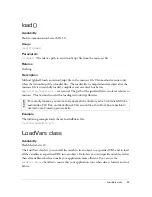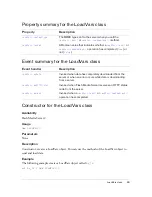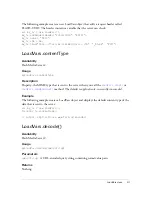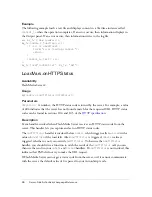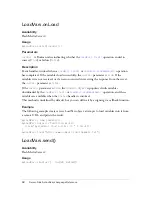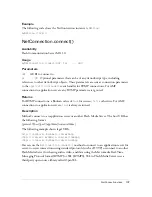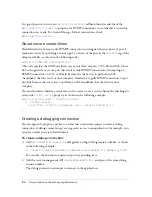
LoadVars class
97
Example
The following example shows how to use
onHTTPStatus
to help with debugging. The
example collects HTTP status codes and assigns their value and type to an instance of the
LoadVars object. (Notice that this example creates the instance members
this.httpStatus
and
this.httpStatusType
at runtime.) The
onData
handler uses these instance members to
trace information about the HTTP response that can be useful in debugging.
var myLoadVars = new LoadVars();
myLoadVars.onHTTPStatus = function(httpStatus) {
this.httpStatus = httpStatus;
if(httpStatus < 100) {
this.httpStatusType = "flashError";
}
else if(httpStatus < 200) {
this.httpStatusType = "informational";
}
else if(httpStatus < 300) {
this.httpStatusType = "successful";
}
else if(httpStatus < 400) {
this.httpStatusType = "redirection";
}
else if(httpStatus < 500) {
this.httpStatusType = "clientError";
}
else if(httpStatus < 600) {
this.httpStatusType = "serverError";
}
}
myLoadVars.onData = function(src) {
trace(">> " + this.httpStat ": " + this.httpStatus);
if(src != undefined) {
this.decode(src);
this.loaded = true;
this.onLoad(true);
}
else {
this.onLoad(false);
}
}
myLoadVars.onLoad = function(success) {
}
myLoadVars.load("http://weblogs.macromedia.com/mxna/flashservices/
getMostRecentPosts.cfm");





